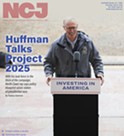Eureka City Schools' $6 Million Jacobs Deal is Dead
District refuses mystery developer's request to extend escrow beyond election
By Thadeus Greenson [email protected] @ThadeusGreenson[
{
"name": "Top Stories Video Pair",
"insertPoint": "7",
"component": "17087298",
"parentWrapperClass": "fdn-ads-inline-content-block",
"requiredCountToDisplay": "1"
}
]
The Eureka City Schools Board of Trustees voted unanimously in closed session Aug. 8 not to extend the escrow period for a $6 million property exchange agreement with a mystery developer in advance of a deadline the following day.
On Aug. 9, the developer, AMG Communities-Jacobs, LLC, released an unattributed statement announcing it had "decided to withdraw" from the deal, blaming Eureka city officials "strident opposition" to rezoning the property, an allegation Eureka City Manager Miles Slattery dismissed as "laughable."
The district controversially entered into the deal Dec. 14, agreeing to trade 8.3 acres of its former Jacobs Middle School property on Allard Avenue to AMG, a company legally formed two days prior, in exchange for a small residence on I Street and $5.35 million in cash. In addition to having shared interests with Measure F, a ballot initiative coming before Eureka voters in November that would rezone the Jacobs site to allow housing and block the city's current plans to convert municipal parking lots into apartment complexes, a growing list of connections seemed to align the exchange agreement with local businessman Robin P. Arkley's efforts to protect Eureka's parking lots.
Under an amended agreement reached in July, the district and AMG had until Aug. 9 to tie up loose ends and close the deal, which for the district meant securing a lot line adjustment from the city of Eureka and for AMG meant either making needed repairs to the I Street property or agreeing to compensate the district for the cost of taking them on.
"The district has done everything in its power to be able to close by tomorrow's deadline, and we are poised and ready to do so," Assistant Superintendent of Business Services Paul Ziegler told the board Aug. 8. "However, AMG has indicated it is not prepared to close and, instead, has asked for an additional extension. It has been a long and interesting road to get to this point and, with that said, staff does not recommend that we grant that additional extension. AMG has had plenty of time to perform and do what it needs to do to come to the table to close and, as I said just a minute ago, they're not prepared to do so."
After the meeting, Ziegler told the Journal that representatives of AMG had requested an extension "out past November" to close the deal.
While the matter wasn't discussed until Ziegler's report at the end of the meeting, the board reported out of closed session earlier that it had voted unanimously, with Trustee Mike Duncan absent, not to authorize a third extension on the exchange agreement.
Exactly what this meant for the deal was not entirely clear that night, as AMG could conceivably have still moved forward and closed Aug. 9, though district staff seemed to feel that was unlikely.
After Ziegler's report, board President Susan Johnson briefly recapped the night's decision and asked Superintendent Gary Storts what comes next.
"What does that mean?" she asked. "That means this deal is off and we're done? What does that mean?"
"Technically," Storts replied, "the agreement terminates tomorrow and if no further action is taken to extend beyond that point and we don't move to a close, which it certainly doesn't appear we are, we're out of contract and Monday morning we have no further agreement with AMG."
The following day, AMG issued its statement — sent anonymously from [email protected] — confirming it was pulling out of the deal eight months after it was controversially announced. The statement vaguely lays blame for the decision on city officials, saying they'd opposed efforts to rezone the site, though city officials say AMG's representatives simply refused to engage despite numerous attempts to make contact to discuss their plans for the property.
"We sought this property and were willing to make a substantial investment in the community because we believe the community supports the construction of badly needed housing at the site," the statement reads. "Our investors were willing to pay an above-market price for the property in order to provide as much benefit as possible to the school district. However, the strident opposition of several city officials, including certain members of the city council, to efforts to rezone this site for family housing has created a political climate that is too risky for the size of investment needed to bring our vision for the Jacobs site into reality."
Slattery said the company's assertion is simply false, saying the city used all available avenues to try to contact AMG, whose principals and investors have never been publicly identified, to discuss the company's plans and needs. Specifically, Slattery said the city attempted to contact Brad Johnson, AMG's attorney, Thomas Swett, another attorney who filed the company's articles of organization, and even the above email address listed on the company's website but never received a response.
"This is an absolutely laughable statement, probably the most laughable statement I've heard since I became city manager," said Slattery, who stepped into the position in 2020, adding that, when asked, the city promptly helped Eureka City Schools with a request for a lot-line adjustment needed to facilitate the exchange.
Eureka Development Services Director Christin Kenyon also pushed back on the company's assertions.
"I know of no city opposition to rezoning the site for housing," she said in an email to the Journal. "As a largely built out city, we are excited about the opportunity the Jacobs site presents for more housing."
Kenyon said the only negative remarks she's heard from city officials haven't been about the developers' plans for the Jacobs site — which remained unclear — but the process by which Eureka City Schools entered into the exchange agreement, which has also drawn criticism from the Humboldt County Civil Grand Jury and the League of Women Voters of Humboldt County for a lack of transparency, due diligence and public input.
Like Slattery, Kenyon also noted that AMG was never in contact with the city, which she described as "highly unusual."
"To my knowledge, no one from AMG ever reached out to the city to discuss redevelopment of the site," Kenyon said. "It was highly unusual not to be contacted. Before and during escrow of large properties, buyers typically request permit files and ask lots of questions about allowed uses, zoning standards, impact fees, public improvements required, infrastructure capacity, etc."
AMG's statement closes with an allegation that the city has somehow been anti-housing development.
"With a few expectations in Southern California, nearly every city in the state is working hard to attract developers interested in providing housing that is affordable to average working residents," the statement says. "The city of Eureka, by comparison, has been working hard to repel this type of investment. That is unfortunate and a loss to city residents."
Again using the word "laughable," Slattery says the city is "bending over backwards to make any kind of housing," pointing to a variety of projects in various stages of development and efforts the city has undertaken to help developers secure funding, tax credits and variances. Ironically, some of those projects include the proposed apartment buildings set to replace city-owned parking lots, the ones Measure F would thwart.
Eureka has also received state plaudits for its housing efforts, with the governor's office naming it one of several dozen "prohousing" communities in California back in January. Additionally, Attorney General Rob Bonta issued a statement the following month praising Eureka for acting "swiftly and fiercely" to address the statewide housing shortage while announcing he'd filed an amicus brief in support of Eureka's defense of a lawsuit brought against it by another Security National funded effort seeking to thwart the parking lot developments.
Arkley has been a vocal critic of the city's parking lot plans since they were announced, telling a local radio show that parking is the "lifeblood" of the local business district and claiming low-income housing brings crime, though there's no evidence this is true. He threatened to move Security National out of the city should the parking lot plans proceed, and has since launched a multi-pronged effort to stop them.
Through the group Citizens for a Better Eureka, Security National has funded five lawsuits against the city to halt the parking lot development projects. All were filed by Johnson, who would later pop up as AMG's attorney, but have so far been unsuccessful.
Security National has also bankrolled what will appear as Measure F on Eurekans' November ballot to the tune of nearly $1 million. If passed, officials believe the measure would effectively block the city's plans by requiring that any development on the identified municipal lots both maintain the existing number of parking spaces while also providing parking for new tenants, making the developments cost prohibitive. The measure would also rezone the Jacobs property to allow housing development, which proponents argue would provide "hundreds of units" of affordable housing and make up for any lost due to the new protections for downtown parking.
But as critics and news reports pointed out when the initiative began circulating for signatures back in August, the Jacobs property was — and remains — zoned public under the ownership of Eureka City Schools. At the time, the district was in what appeared to be late-stage negotiations to sell the property to the California Highway Patrol, which planned to relocate its Northern Humboldt headquarters there and had offered $4 million for the land.
In late September, the city determined proponents of the initiative had gathered enough signatures to qualify the measure for the ballot. Within weeks, according to emails released to the Journal pursuant to a public records act request, Johnson had begun negotiating the property exchange agreement on behalf of a mystery buyer who an attorney representing the district believed to be Arkley.
Now the future of the Jacobs property is unclear. Storts said district staff will present options to the board at its next meeting on how to move forward, and staff had previously reported the CHP remains interested in purchasing it.
In its unattributed statement, AMG, meanwhile, said it will "wait until the passage of Measure F ... to reconsider purchasing the property if it is still available at that time."
It will be Eureka voters, of course, who decide whether to pass Measure F in the Nov. 5 election.
Thadeus Greenson (he/him) is the Journal's news editor. Reach him at (707) 442-1400, extension 321, or [email protected].
more from the author
Latest in News
Readers also liked…
-
Through Mark Larson's Lens
A local photographer's favorite images of 2022 in Humboldt
- Jan 5, 2023
-
'To Celebrate Our Sovereignty'
Yurok Tribe to host gathering honoring 'ultimate river warrior' on the anniversary of the U.S. Supreme Court ruling that changed everything
- Jun 8, 2023

































